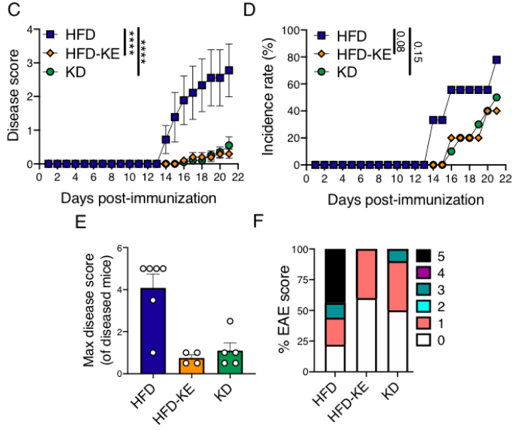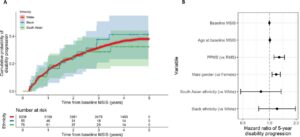
“A diet-dependent host metabolite shapes the gut microbiota to protect from autoimmunity.”
Margaret Alexander, et al. – UC San Francisco.
Background: While ketogenic diets (KD) improve symptoms and slow disease progression in patients with MS and in mouse models, the mechanisms by which they provide benefits are unclear.
This Study: Alexander and colleagues found that supplementation with β-hydroxybutyrate (βHB), a ketone body associated with KD, was able to mimic the benefits of KD in two experimental autoimmune encephalitis (EAE) mouse models of MS. Production of βHB in the gut was required for experiencing the full benefits of KD, as deleting a key enzyme for its production from intestinal epithelial cells led to greater EAE symptoms in mice provided with KD. Fecal microbiota transfer experiments indicated that gut production of βHB beneficially shifts microbiome composition. Mice on KD showed greater levels of a Lactobacillus strain that produces indole-3-lactate (ILA); these results, combined with ILA supplementation improving EAE, provide further support for the role of ILA and microbiota that produce it in mitigating MS risk.
Bottom Line: Supplementation with βHB can provide the protective benefits observed with KD without the difficulty or side effects associated with adhering to this diet, potentially enabling it to be an effective therapeutic option. Whether intestinal production of βHB is fully required for the neuroprotective effect, as argued by the authors, or simply required for the full effect is unclear, as there are no data from intestinal epithelial cell knockout mice fed a control diet to compare with those fed KD.




